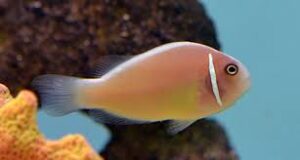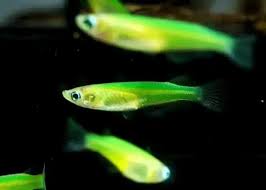China is the birthplace of tea, home to some of the most exquisite and valuable teas in the world. For centuries, Chinese tea culture has emphasized quality, craftsmanship, and rarity, leading to the development of high-end fresh teas that are highly sought after both domestically and internationally.
Some of these teas are expensive due to their limited production, unique growing conditions, and the meticulous handcrafting process. This article explores the most valuable fresh teas in China, their origins, flavors, and what makes them truly exceptional.
1. Da Hong Pao (大红袍) – The King of Wuyi Rock Tea
Origin: Wuyi Mountains, Fujian Province
Price: Up to $1.2 million per kilogram for authentic vintage Da Hong Pao
Type: Oolong tea
Why is Da Hong Pao so valuable?
Da Hong Pao, also known as the “Big Red Robe”, is one of the most famous and expensive teas in China. The original tea bushes are centuries old, and their leaves are harvested only in small quantities. The tea has a rich, complex flavor with notes of roasted nuts, honey, and orchids.
🚀 Interesting Fact:
The original six mother trees of Da Hong Pao are so valuable that they are protected by the Chinese government, and no commercial harvesting has been allowed since 2006. Most Da Hong Pao available today is made from clonal descendants of the original bushes.
2. Tieguanyin (铁观音) – The Iron Goddess of Mercy
Origin: Anxi, Fujian Province
Price: High-quality varieties can cost over $3,000 per kilogram
Type: Oolong tea
What makes Tieguanyin special?
This tea is named after the Bodhisattva Guanyin and is considered one of the finest oolong teas in the world. Traditional hand-rolled Tieguanyin undergoes a long processing method, including oxidation, rolling, and roasting, giving it a floral aroma, creamy texture, and lingering sweetness.
🚀 Interesting Fact:
The highest-grade Tieguanyin is picked only during specific seasons, usually spring and autumn, as the leaves develop their best flavor profiles during these times.
3. Xinyang Maojian (信阳毛尖) – The Finest Green Tea from Henan
Origin: Xinyang, Henan Province
Price: Premium grades can reach $5,000 per kilogram
Type: Green tea
Why is Xinyang Maojian so valuable?
Xinyang Maojian is famous for its slim, needle-like leaves covered in fine white hairs (“mao”). It is harvested early in the spring, and only the most tender buds and young leaves are used. The tea has a refreshing, grassy aroma with a slight umami taste, making it one of China’s most prized green teas.
🚀 Interesting Fact:
This tea is known as one of the top ten famous teas of China and is grown in a region with a unique microclimate that enhances its flavor.
4. Longjing (龙井) – The Legendary Dragon Well Tea
Origin: Hangzhou, Zhejiang Province
Price: High-quality varieties, such as West Lake Longjing, can cost $10,000 per kilogram
Type: Green tea
What makes Longjing so exceptional?
Longjing (Dragon Well) is one of China’s most famous and expensive teas. It is known for its flat, smooth leaves, nutty taste, and delicate chestnut aroma. Authentic West Lake Longjing (西湖龙井) is produced only in the designated regions around Hangzhou and is often hand-picked by skilled tea artisans.
🚀 Interesting Fact:
The best Longjing tea comes from the first spring harvest (Mingqian), when the leaves are most tender and flavorful.
5. Baihao Yinzhen (白毫银针) – The Silver Needle White Tea
Origin: Fujian Province (Fuding and Zhenghe)
Price: High-grade Silver Needle can cost over $6,000 per kilogram
Type: White tea
Why is Baihao Yinzhen so valuable?
Baihao Yinzhen (Silver Needle) is made exclusively from the youngest tea buds, which are covered in fine, silver-white hairs. The tea is known for its delicate, floral aroma and sweet, mellow taste. Because only top buds are used, production is extremely limited.
🚀 Interesting Fact:
This tea undergoes minimal processing, relying on natural sun-drying and slight oxidation, preserving the most natural essence of the tea leaves.
6. Junshan Yinzhen (君山银针) – The Rare Yellow Tea
Origin: Junshan Island, Hunan Province
Price: Can reach over $8,000 per kilogram
Type: Yellow tea
Why is Junshan Yinzhen unique?
Junshan Yinzhen is a rare yellow tea, a category that is even rarer than white tea. It undergoes a special “sealed yellowing” process, giving it a unique, sweet, and mellow flavor. Only a few hundred kilograms are produced each year.
🚀 Interesting Fact:
Junshan Yinzhen was the preferred tea of Emperor Qianlong and has been considered an imperial tribute tea for centuries.
7. Wuyi Rougui (武夷肉桂) – The Cinnamon Rock Tea
Origin: Wuyi Mountains, Fujian Province
Price: Premium Rougui teas can cost over $5,000 per kilogram
Type: Oolong tea
What makes Wuyi Rougui special?
This Wuyi Rock Tea variety is known for its distinctive spicy, cinnamon-like aroma. Grown in rocky, mineral-rich soil, Rougui has a bold, roasted flavor with hints of caramel and floral sweetness.
🚀 Interesting Fact:
The best Rougui teas come from centuries-old tea bushes grown in the core Wuyi Mountain region, where only a small quantity is produced each year.
8. Pu-erh Tea (普洱茶) – The Fermented Treasure
Origin: Yunnan Province
Price: Rare vintage Pu-erh teas can sell for over $100,000 per kilogram
Type: Fermented dark tea
Why is Pu-erh so valuable?
Pu-erh is unique because it improves with age, much like fine wine. Some of the most expensive Pu-erh teas are aged for decades, developing rich, earthy, and complex flavors. Authentic Pu-erh is made from ancient tea trees in Yunnan, some of which are over 1,000 years old.
🚀 Interesting Fact:
A 357-gram Pu-erh tea cake from 1950 was once sold for $1.3 million, making it one of the most expensive teas ever recorded.
Conclusion: The Future of Luxury Chinese Teas
The most valuable fresh teas in China are not just expensive because of their price but because of their rich history, craftsmanship, and limited production. With growing global demand, the market for premium Chinese teas continues to expand, attracting collectors and tea enthusiasts worldwide.
Whether you are a tea connoisseur or a casual drinker, these high-end teas offer a unique experience that reflects centuries of tradition and innovation in Chinese tea culture. 🍵✨











